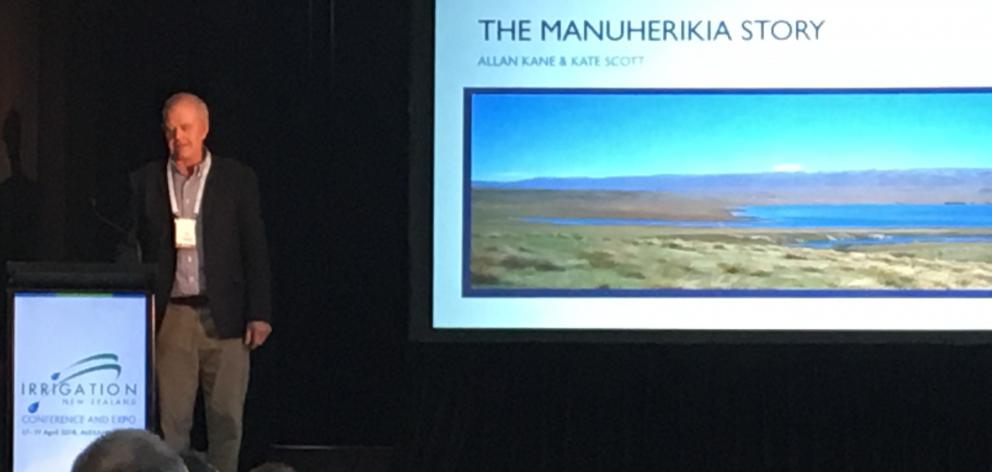Mr Kane, who spoke about the Falls Dam proposal at yesterday’s Irrigation New Zealand conference in Alexandra, said the changes meant alternative funding would need to be found for the final pre-construction, feasibility phase of the project.
The group had determined late last year a 6m raising of the Falls Dam for 12,500ha of irrigable land in the Manuherikia Valley was the best of several options considered, and had been hoping for more Crown Irrigation Investments (CII) funding for the final feasibility studies needed for that option, Mr Kane said.
However, the Government’s recent announcement that CII would not fund any new irrigation proposals meant funding would now not be available to finish the feasibility studies, he said.
Mr Kane said it was not yet known how much more money was needed for that stage — that was being assessed at present.

However, farmers’ funding for the final feasibility stage would now not be matched by CII funding, Mr Kane said.
"It would have been difficult enough for the farmers to even meet 50% of it [final feasibility stage costs]. Now that [funding] is not going to be there, it does become a huge hurdle that we’ll have to find some way of funding ... it’s a major hurdle."
Mr Kane said the Manuherikia group would overcome the obstacle.
"We have to ... doing nothing within the catchment is not an option."
Irrigation New Zealand chairwoman Nicky Hyslop and chief executive Andrew Curtis said the government changes meant there would be challenges finding capital for irrigation projects, but they hoped irrigators would still be able to count on government support.
Ms Hyslop said upgrading existing irrigation schemes and building water storage was "just so important to regional New Zealand", and she hoped to have "ongoing conversations" with the Government about schemes that included "important environmental components".
Mr Curtis said Irrigation New Zealand would keep working with government ministers, and show the positive and environmentally sustainable changes that had been made in the irrigation sector.
"Once they [the Government] start to realise what we’re doing for the environment and what we’re doing for the community, [we hope] they will definitely be supportive in the future."
Some other speakers at the conference acknowledged positive moves in the irrigation sector, but said it was still good to "pause" and take stock of some mistakes that had been made by the primary sector, and it was vital to protect New Zealand’s waterways.
Pamu Farms environmental head Alison Dewes said the nation had reached the economic, social and environmental limits of extracting as much from our land as possible, and there was a need to "pull back" after the "fast and hard", mass land change of the past 25 years.












